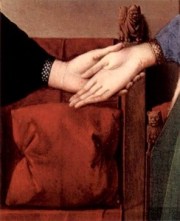The following has been adapted from a much longer essay in a forthcoming book by Theotokos press.
Augustine of Hippo infamously declared that sex was sinful even within loving marriages. It can be tempting for we anachronistic Illuminati to wag our fingers and scold his memory for being such a “prude,” but, as John Cavadini pointed out,  “To fault Augustine in this context for not realizing that ‘sexual pleasure’ can enrich a couple’s relationship, or to assess Augustine’s views against our own more ‘positive’ view, may be, with all due respect, to beg the question.” In other words, before we dismiss Augustine, we should ask ourselves in what way he might have been right. Who is to say that sex – even within the confines of marriage – is always, or even mostly, a good thing? Perhaps Augustine was wrong. Or perhaps we like sex and prefer not to think too much about its spiritual consequences. Cavadini continues, “For Augustine, the question would not be whether sexual pleasure can enrich a couple’s relationship, but whether there is any sexual pleasure possible without a taint of violence or complacency (’self-pleasing’) in it.”[1] The fact that Augustine thought there was sin in sex means that he thought of sex fundamentally in spiritual terms. He charted a middle way between the naïve Pelagianism of Julian of Eclanum, who saw conjugal sex as something innocent and harmless, and rigorist ascetics who would have every Christian don the black. These perspectives (the Pelagian and ascetic) only seem disparate, but they both share an anthropology which sees sex as something belonging merely to the flesh. For Augustine, sexual intercourse was a spiritual event with spiritual implications. In sex, Christian charity, sinful lust, the weakened will, and our divided loves meet in a moment of intense bodily pleasure. This makes sex, in a word, complicated.
“To fault Augustine in this context for not realizing that ‘sexual pleasure’ can enrich a couple’s relationship, or to assess Augustine’s views against our own more ‘positive’ view, may be, with all due respect, to beg the question.” In other words, before we dismiss Augustine, we should ask ourselves in what way he might have been right. Who is to say that sex – even within the confines of marriage – is always, or even mostly, a good thing? Perhaps Augustine was wrong. Or perhaps we like sex and prefer not to think too much about its spiritual consequences. Cavadini continues, “For Augustine, the question would not be whether sexual pleasure can enrich a couple’s relationship, but whether there is any sexual pleasure possible without a taint of violence or complacency (’self-pleasing’) in it.”[1] The fact that Augustine thought there was sin in sex means that he thought of sex fundamentally in spiritual terms. He charted a middle way between the naïve Pelagianism of Julian of Eclanum, who saw conjugal sex as something innocent and harmless, and rigorist ascetics who would have every Christian don the black. These perspectives (the Pelagian and ascetic) only seem disparate, but they both share an anthropology which sees sex as something belonging merely to the flesh. For Augustine, sexual intercourse was a spiritual event with spiritual implications. In sex, Christian charity, sinful lust, the weakened will, and our divided loves meet in a moment of intense bodily pleasure. This makes sex, in a word, complicated.
Augustine did not think sex was inherently sinful. For Augustine, God create Adam and Eve male and female, and thus God intended our different sexual organs to serve a divine purpose.[2] It is only lust that makes sex sinful. In our fallen state, our sexual desires, and thus our bodies, are never fully under our control. Eden was different: Continue reading “Augustine on Sin and Sex”









